The CID is investigating into the smuggling of ten truck loads of arms, believed to be meant for ULFA hideouts in Assam in India.
A retired police officer has been quizzed by the Bangladesh Criminal Investigation Department probing a case of smuggling of arms meant for ULFA militants in northeastern India.
The CID is investigating into the smuggling of ten truck loads of arms, believed to be meant for ULFA hideouts in Assam in India, which was seized by the Bangladesh security forces from southeastern port city of Chittagong in 2004.
Officials said that they quizzed former deputy inspector general (DIG) Shamsul Islam for nearly seven hours, weeks after the investigators grilled a former home ministry bureaucrat Omar Faruque as part of a fresh probe into Bangladesh's biggest ever weapon haul.
A CID official on condition of anonymity said they questioned Islam about a high-level probe committee's finding earlier implicating only five people and creating scopes for other suspects to evade the charge.
"The former DIG told us the committee had to submit the probe report in a haste following the directive of former home secretary Omar Faruque, who led the probe body," he said.
The development came days after police said they were trying to identify the ship which smuggled the weapons, to be supplied apparently to the United Liberation Front of Assam (ULFA) hideouts, into Bangladesh.
Earlier Faruque was questioned as he was the head of a five-member high-powered investigation committee while at least two of them, the two detained former chiefs of the country's top intelligence agencies and ex army generals; themselves were suspected to be involved in the haul.
The Prothom Alo newspaper quoting another official familiar with the investigation reported that the committee apparently completed its responsibility giving only a five-page superficial report, visibly to help the masterminds of the haul to evade justice.
The report said Faruque told the investigators that the committee "could work freely but not properly" due to "time constraint" as they were given only two weeks time excluding the holidays.
The committee had named five people including the owner of the boats used in carrying the weapons from the ship to shore a porter leader and owner of a porter contracting firm who had little idea about the main plan.
CID, which was tasked to re-investigate the case, last month obtained an extended three months time from a Chittagong court while the reinvestigation process yielded the arrest of several high-profile intelligence officials including the two ex-army generals who earlier headed the apex National Security Intelligence (NSI).
The past military-backed government last year had ordered re-investigation amid allegations that there was a deliberate attempt on the part of the then administration of ex-premier Khaleda Zia's Bangladesh Nationalist Party (BNP)-led government to suppress facts to weaken the case.
An earlier report quoting CID officials said detained ex-NSI chief retired brigadier general Abdur Rahim and another official of the intelligence agency told interrogators and the court that Dubai-based ARY business group and Pakistan's Inter Services Intelligence (ISI) were involved in the abortive weapon smuggling.
Rahim and his successor in NSI retired major general Rezzakul Haider Chowdhury, three other officials of the intelligence agency were arrested and quizzed in custody as part of the investigation in the past several months while officials said they found clues of involvement of at least one politician belonging to BNP in the haul.
Rahim was the NSI chief during the seizure of the weapons while Haidar succeeded him as both served as the top boss of the main intelligence agency during the 2001-2006 BNP regime.
Chowdhury, however, was removed and sent to retirement instantly after the proclamation of the state of emergency installing an interim government with crucial military support on January 11, 2007.
The seized weapons included over 27,000 grenades, 150 rocket launchers, over 11lakh ammunitions and 1,100 sub machine guns. The arms were unloaded at a government jetty on April 2004 but were seized by security agencies despite the suspected involvement of the intelligence officials in the smuggling bid, which was reportedly being overseen by ULFA leader Paresh Barua.
![submenu-img]() House of the Dragon season 2 trailer: Rhaenyra wages an unwinnable war against Aegon, Dance of the Dragons begins
House of the Dragon season 2 trailer: Rhaenyra wages an unwinnable war against Aegon, Dance of the Dragons begins![submenu-img]() Panchayat season 3 trailer: Jitendra Kumar returns as sachiv, Neena, Raghubir get embroiled in new political tussle
Panchayat season 3 trailer: Jitendra Kumar returns as sachiv, Neena, Raghubir get embroiled in new political tussle![submenu-img]() Apple partners up with Google against unwanted tracker, users will be alerted if…
Apple partners up with Google against unwanted tracker, users will be alerted if…![submenu-img]() Meet actress whose debut film was superhit, got married at peak of career, was left heartbroken, quit acting due to..
Meet actress whose debut film was superhit, got married at peak of career, was left heartbroken, quit acting due to..![submenu-img]() Who is the real owner of Delhi's Connaught Place and who collects rent from here?
Who is the real owner of Delhi's Connaught Place and who collects rent from here?![submenu-img]() Meet man who is 47, aspires to crack UPSC, has taken 73 Prelims, 43 Mains, Vikas Divyakirti is his...
Meet man who is 47, aspires to crack UPSC, has taken 73 Prelims, 43 Mains, Vikas Divyakirti is his...![submenu-img]() IIT graduate gets job with Rs 100 crore salary package, fired within a year, he is now working as…
IIT graduate gets job with Rs 100 crore salary package, fired within a year, he is now working as…![submenu-img]() Goa Board SSC Result 2024: GBSHSE Class 10 results to be out today; check time, direct link here
Goa Board SSC Result 2024: GBSHSE Class 10 results to be out today; check time, direct link here![submenu-img]() CUET-UG 2024 scheduled for tomorrow postponed for Delhi centres; check new exam date here
CUET-UG 2024 scheduled for tomorrow postponed for Delhi centres; check new exam date here![submenu-img]() Meet man who lost eyesight at 8, bagged record-breaking job package at Microsoft, not from IIT, NIT, VIT, his salary is…
Meet man who lost eyesight at 8, bagged record-breaking job package at Microsoft, not from IIT, NIT, VIT, his salary is…![submenu-img]() DNA Verified: Is CAA an anti-Muslim law? Centre terms news report as 'misleading'
DNA Verified: Is CAA an anti-Muslim law? Centre terms news report as 'misleading'![submenu-img]() DNA Verified: Lok Sabha Elections 2024 to be held on April 19? Know truth behind viral message
DNA Verified: Lok Sabha Elections 2024 to be held on April 19? Know truth behind viral message![submenu-img]() DNA Verified: Modi govt giving students free laptops under 'One Student One Laptop' scheme? Know truth here
DNA Verified: Modi govt giving students free laptops under 'One Student One Laptop' scheme? Know truth here![submenu-img]() DNA Verified: Shah Rukh Khan denies reports of his role in release of India's naval officers from Qatar
DNA Verified: Shah Rukh Khan denies reports of his role in release of India's naval officers from Qatar![submenu-img]() DNA Verified: Is govt providing Rs 1.6 lakh benefit to girls under PM Ladli Laxmi Yojana? Know truth
DNA Verified: Is govt providing Rs 1.6 lakh benefit to girls under PM Ladli Laxmi Yojana? Know truth![submenu-img]() Ananya Panday stuns in unseen bikini pictures in first post amid breakup reports, fans call it 'Aditya Roy Kapur's loss'
Ananya Panday stuns in unseen bikini pictures in first post amid breakup reports, fans call it 'Aditya Roy Kapur's loss'![submenu-img]() Remember Harsh Lunia? Just Mohabbat child star, here's how former actor looks now, his wife is Bollywood's popular...
Remember Harsh Lunia? Just Mohabbat child star, here's how former actor looks now, his wife is Bollywood's popular...![submenu-img]() Mother's Day 2024: Bollywood supermoms who balance motherhood, acting, and run multi-crore businesses
Mother's Day 2024: Bollywood supermoms who balance motherhood, acting, and run multi-crore businesses![submenu-img]() Rocky Aur Rani's Golu aka Anjali Anand shocks fans with drastic weight loss without gym, says fitness secret is...
Rocky Aur Rani's Golu aka Anjali Anand shocks fans with drastic weight loss without gym, says fitness secret is...![submenu-img]() In pics: Ram Charan gets mobbed by fans during his visit to Pithapuram for ‘indirect campaign’ for uncle Pawan Kalyan
In pics: Ram Charan gets mobbed by fans during his visit to Pithapuram for ‘indirect campaign’ for uncle Pawan Kalyan![submenu-img]() Haryana Political Crisis: Will 3 independent MLAs support withdrawal impact the present Nayab Saini led-BJP government?
Haryana Political Crisis: Will 3 independent MLAs support withdrawal impact the present Nayab Saini led-BJP government?![submenu-img]() DNA Explainer: Why Harvey Weinstein's rape conviction was overturned, will beleaguered Hollywood mogul get out of jail?
DNA Explainer: Why Harvey Weinstein's rape conviction was overturned, will beleaguered Hollywood mogul get out of jail?![submenu-img]() What is inheritance tax?
What is inheritance tax?![submenu-img]() DNA Explainer: What is cloud seeding which is blamed for wreaking havoc in Dubai?
DNA Explainer: What is cloud seeding which is blamed for wreaking havoc in Dubai?![submenu-img]() DNA Explainer: What is Israel's Arrow-3 defence system used to intercept Iran's missile attack?
DNA Explainer: What is Israel's Arrow-3 defence system used to intercept Iran's missile attack?![submenu-img]() House of the Dragon season 2 trailer: Rhaenyra wages an unwinnable war against Aegon, Dance of the Dragons begins
House of the Dragon season 2 trailer: Rhaenyra wages an unwinnable war against Aegon, Dance of the Dragons begins![submenu-img]() Panchayat season 3 trailer: Jitendra Kumar returns as sachiv, Neena, Raghubir get embroiled in new political tussle
Panchayat season 3 trailer: Jitendra Kumar returns as sachiv, Neena, Raghubir get embroiled in new political tussle![submenu-img]() Meet actress whose debut film was superhit, got married at peak of career, was left heartbroken, quit acting due to..
Meet actress whose debut film was superhit, got married at peak of career, was left heartbroken, quit acting due to..![submenu-img]() 'Ek actress 9 log saath leke...': Farah Khan criticises entourage culture in Bollywood
'Ek actress 9 log saath leke...': Farah Khan criticises entourage culture in Bollywood![submenu-img]() Bollywood’s 1st multi-starrer had 8 stars, makers were told not to cast Kapoors; not Sholay, Nagin, Shaan, Jaani Dushman
Bollywood’s 1st multi-starrer had 8 stars, makers were told not to cast Kapoors; not Sholay, Nagin, Shaan, Jaani Dushman![submenu-img]() Who is the real owner of Delhi's Connaught Place and who collects rent from here?
Who is the real owner of Delhi's Connaught Place and who collects rent from here?![submenu-img]() Viral video: Chinese artist's flaming 'stairway to heaven' stuns internet, watch
Viral video: Chinese artist's flaming 'stairway to heaven' stuns internet, watch![submenu-img]() Video: White House plays 'Sare Jahan Se Achha Hindustan Hamara" at AANHPI heritage month celebration
Video: White House plays 'Sare Jahan Se Achha Hindustan Hamara" at AANHPI heritage month celebration![submenu-img]() Viral video: Bear rides motorcycle sidecar in Russia, internet is stunned
Viral video: Bear rides motorcycle sidecar in Russia, internet is stunned![submenu-img]() Driver caught on camera running over female toll plaza staff on Delhi-Meerut expressway, watch video
Driver caught on camera running over female toll plaza staff on Delhi-Meerut expressway, watch video














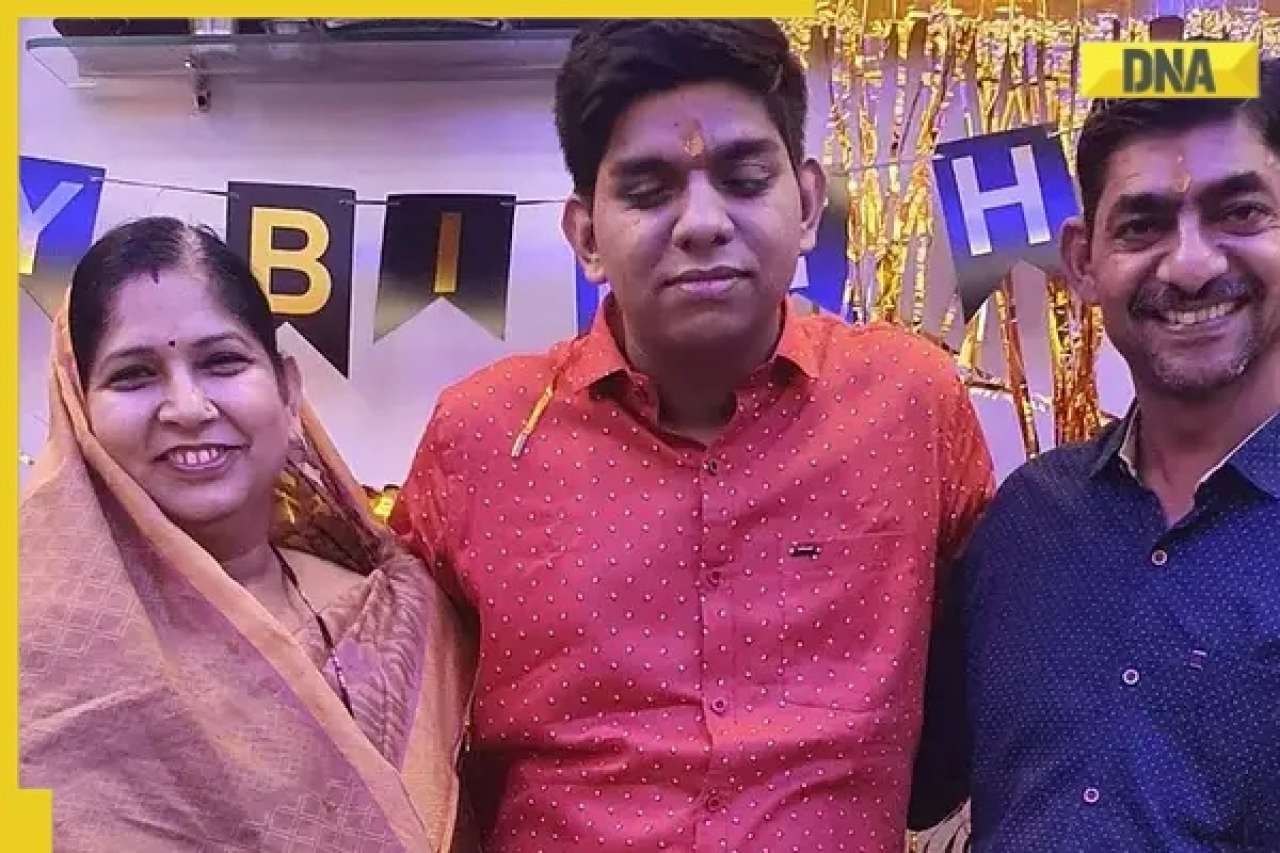
















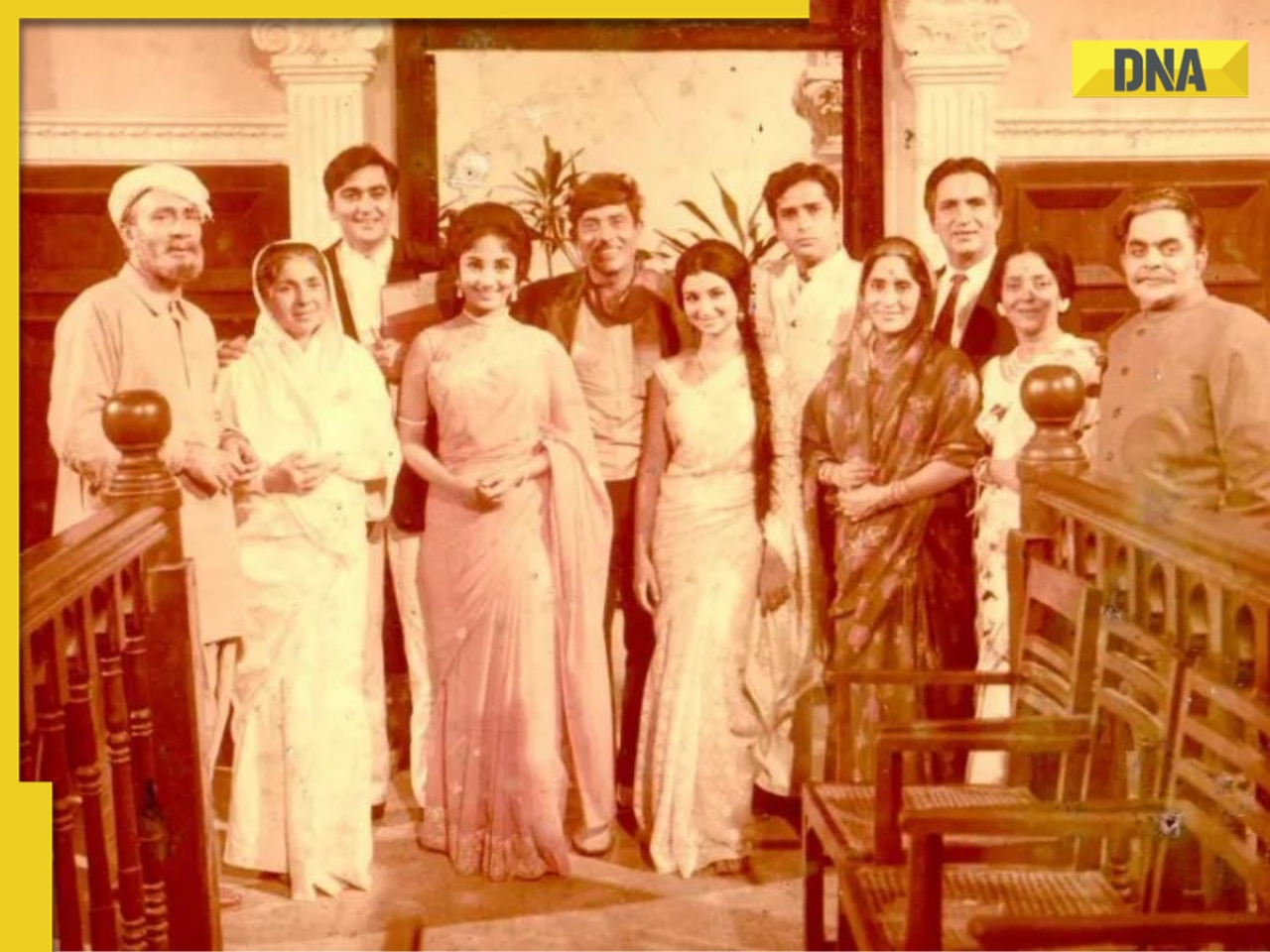
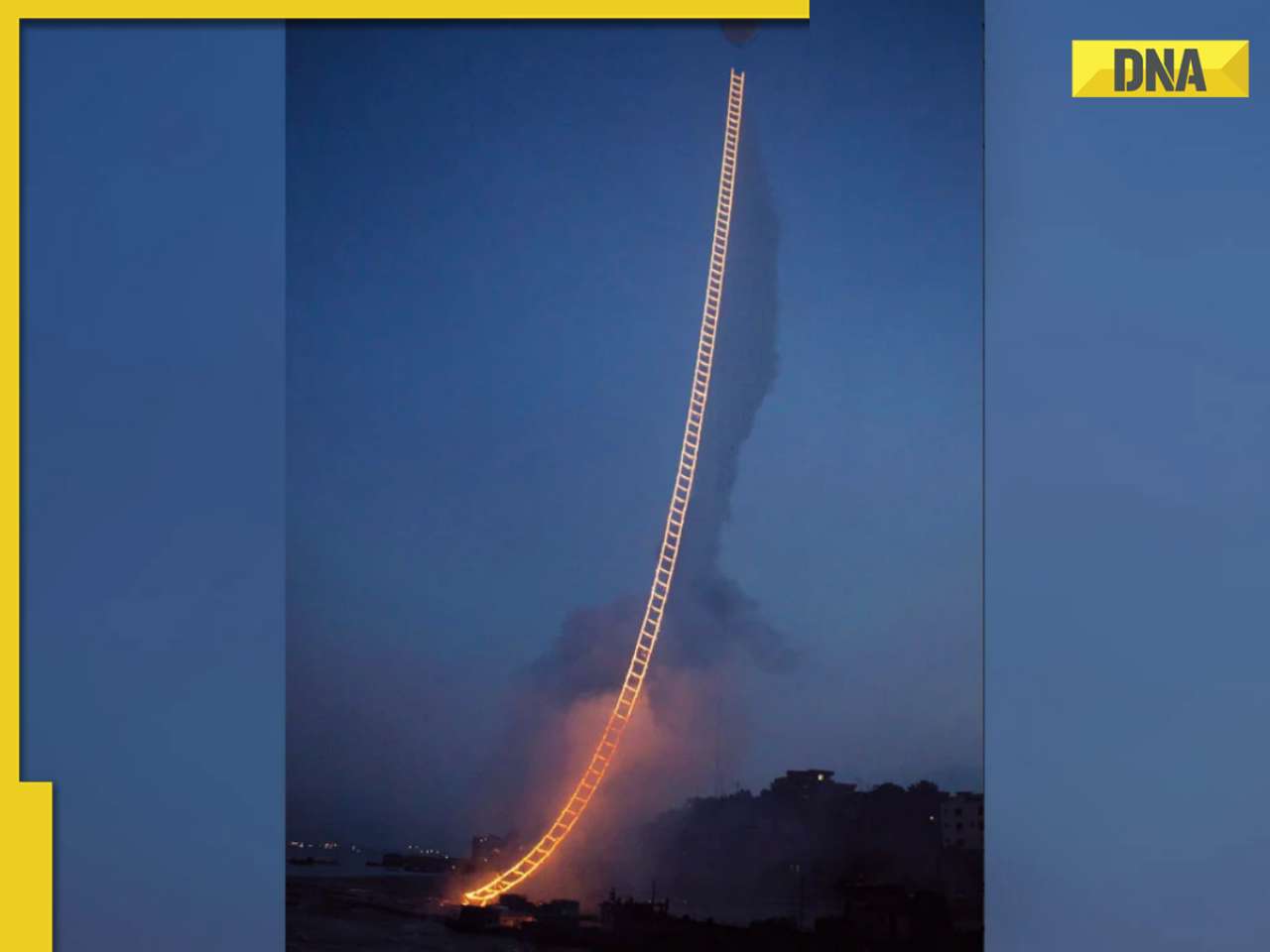
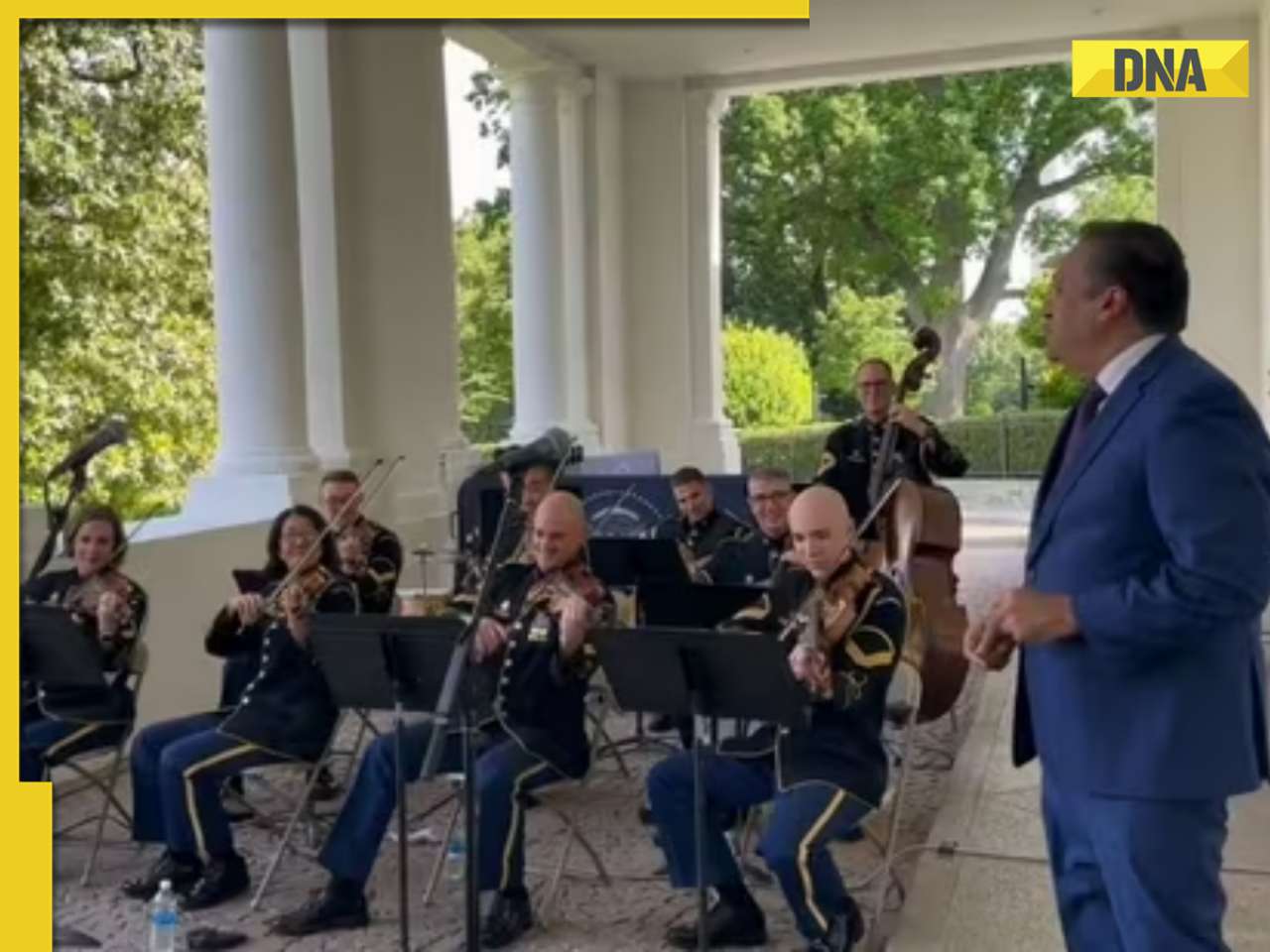











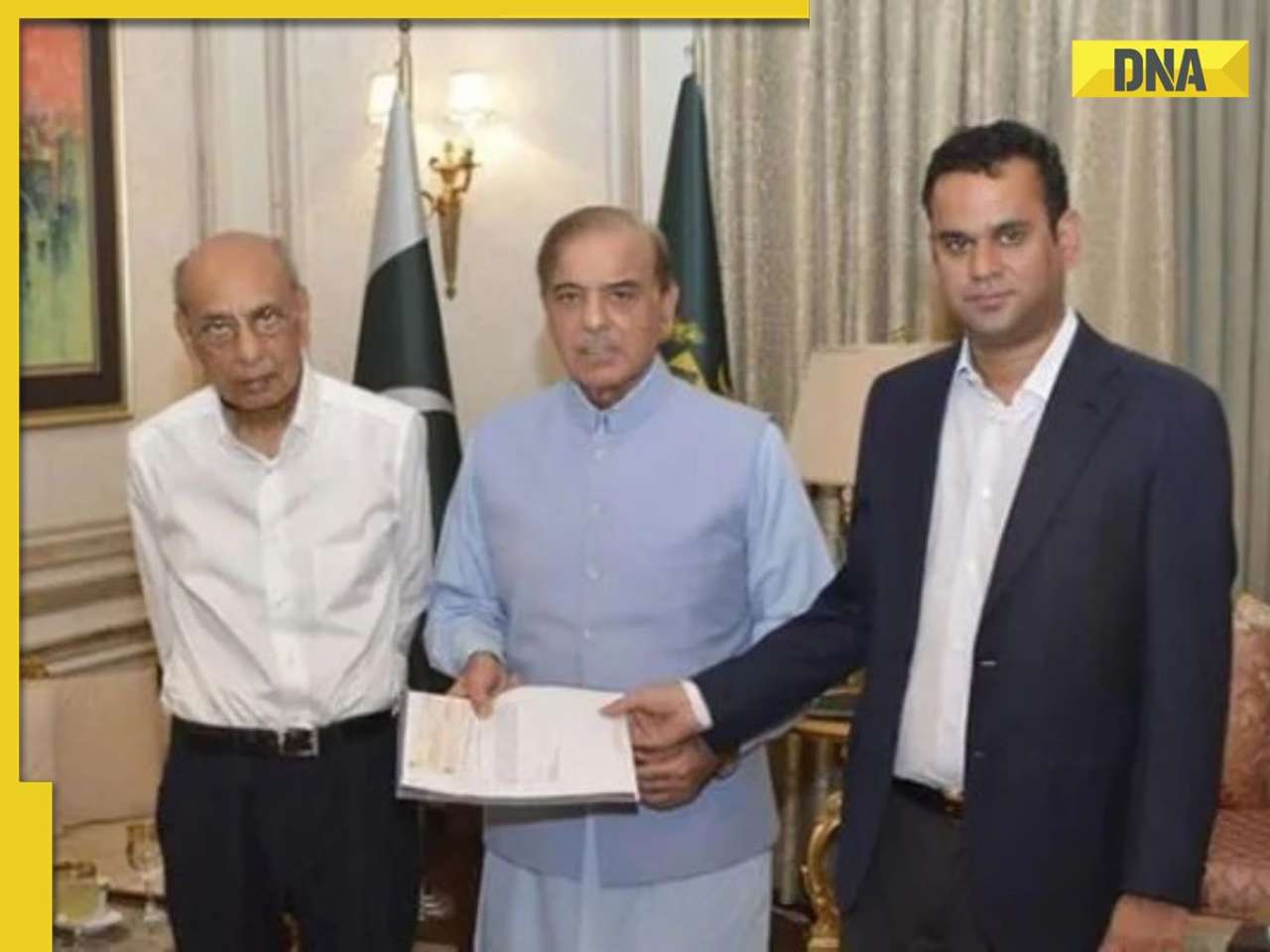









)
)
)
)
)
)